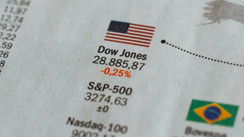Disagreement within Democratic Camp Over Gas Exports
U.S. Senator Michael Bennet, a member of the Democratic Party, has voiced his objection to President Joe Biden's decision to hold off approvals for new exports of liquefied natural gas (LNG). On Sunday, Bennet warned that this strategy might hinder U.S. initiatives to provide gas to Europe in its efforts to supplant Russian imports.
The Senator's statements hint at internal discord within the Democratic Party over President Biden's stance. The President is aiming to juggle his consciousness towards climate change and his commitment to support Europe during Russia's aggressive actions against Ukraine.
Biden's Decision Could Delay Approvals on New Plants
In late January, President Biden decided to put on hold the approvals for pending and prospective applications to export LNG. Climate change advocates applauded the move, which could see decisions regarding new plants deferred until after the elections on November 5.
In a partisan split, the Republican-controlled U.S. House of Representatives sanctioned a bill last week. This legislation aims to revoke President Biden's authority to suspend approvals of gas exportations. Despite securing the House's approval, the bill might encounter resistance in the Senate, which is dominated by Democrats.
Senator Bennet Calls Biden's Decision Short-sighted
In an interview on Fox News Sunday, Bennet, hailing from the natural gas-producing state of Colorado, labeled Biden's decision as "myopic." However, he refrained from stating whether he would back a law to overturn it.
Historically, Russia has been a significant oil and gas provider to Europe. Nevertheless, following Moscow's invasion of Ukraine in February 2022, Europe began to increasingly purchase U.S. LNG. Bennet was quoted saying, "I believe that one of the enormous strategic advantages of the United States is our energy...our clean energy and our fossil fuels."
Last week, a European Commission official affirmed that Biden's decision will not disrupt U.S. supply to Europe in the next two to three years.





